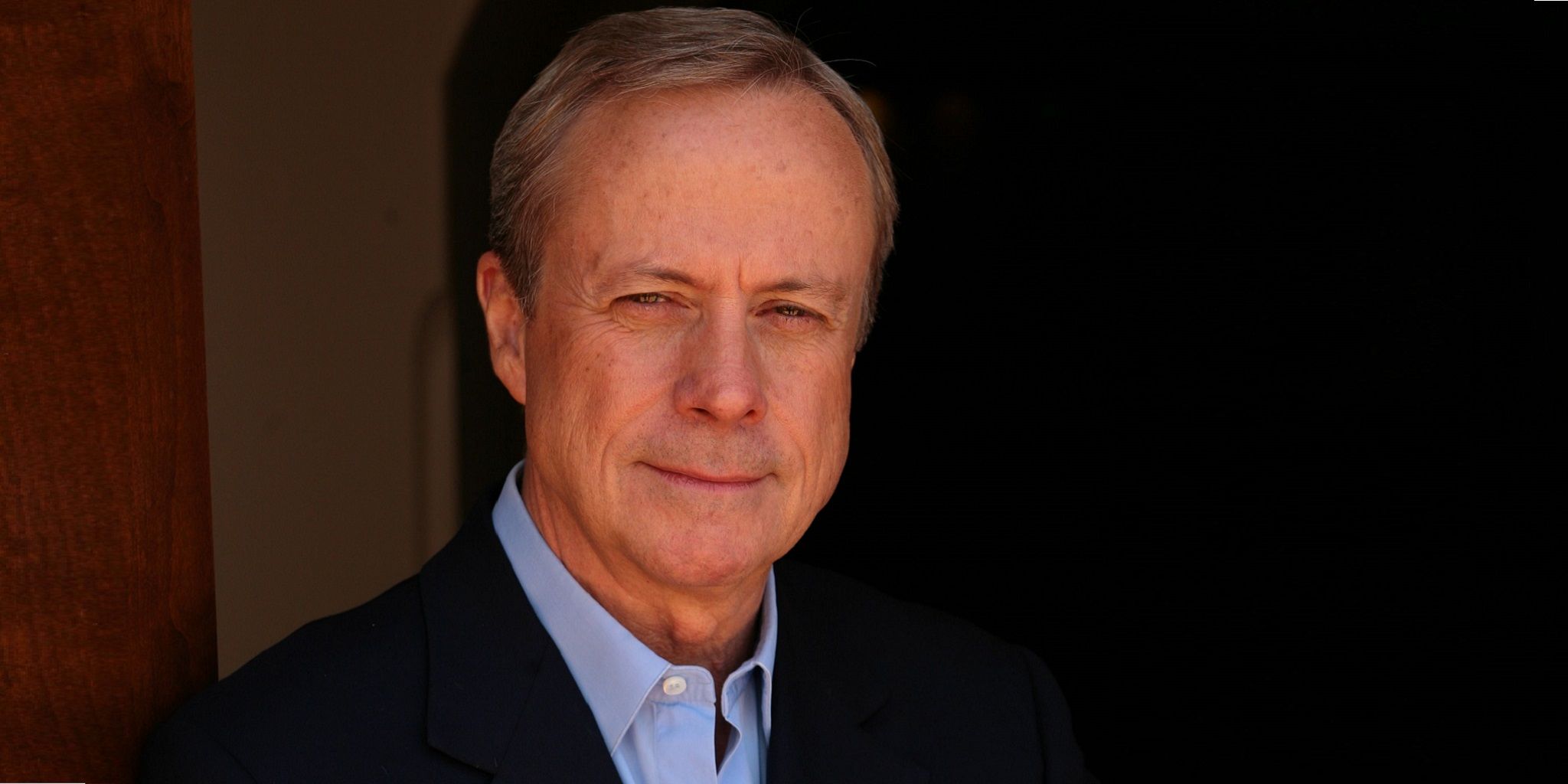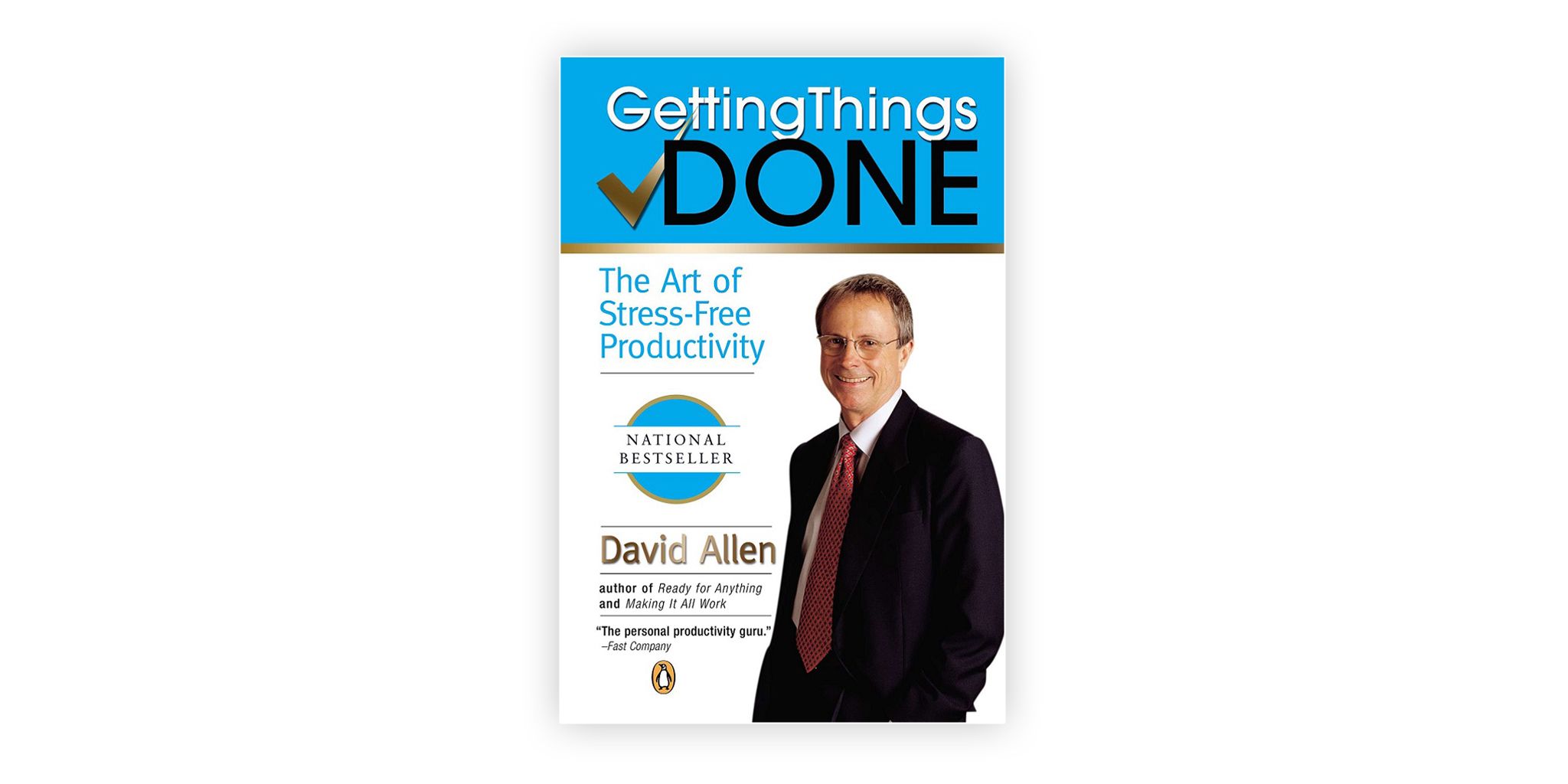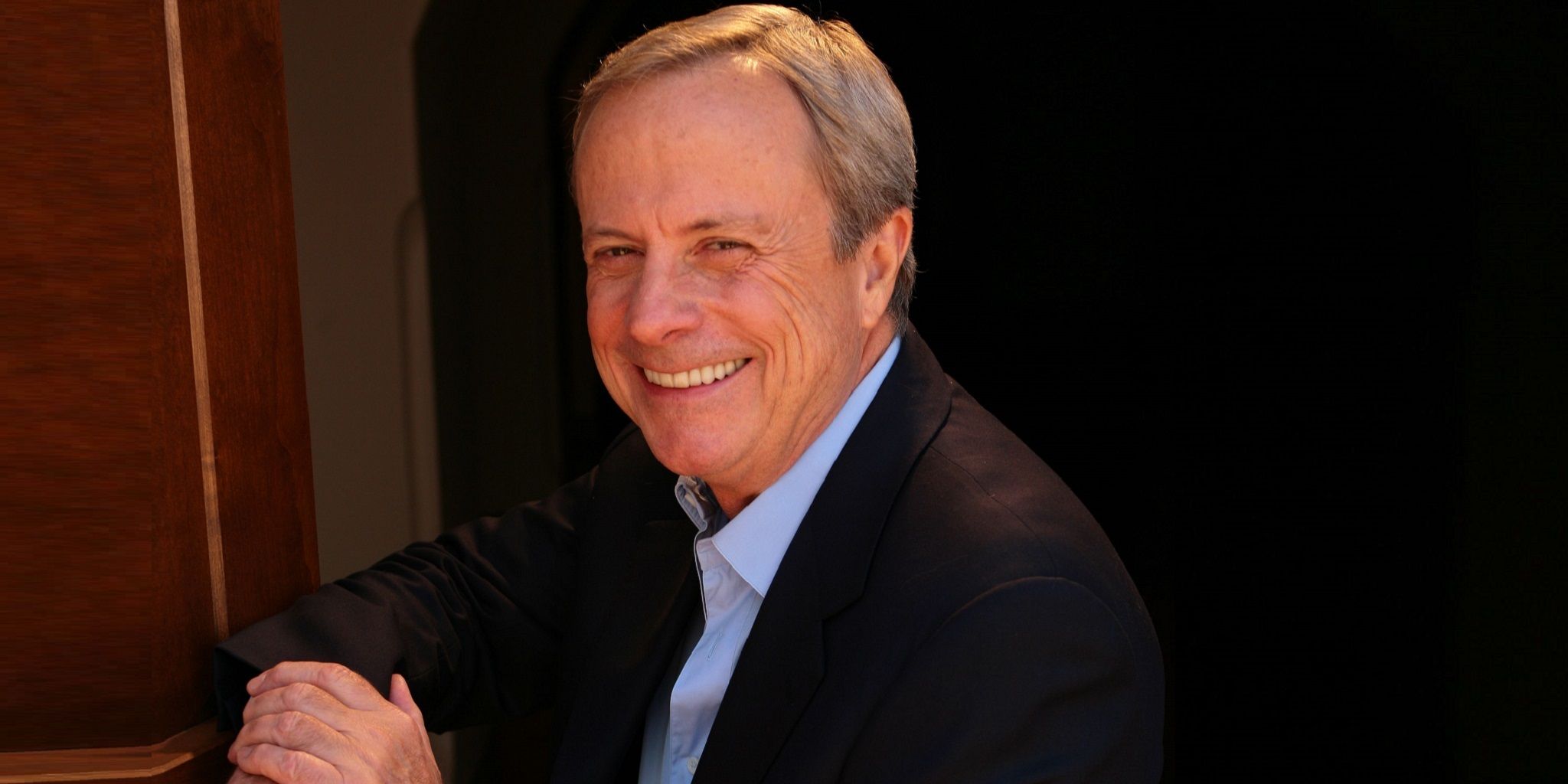Interview with David Allen
Oliver Starr: What was the original impetus for writing your first book?
David Allen: It took me about 25 years. Really that’s how long it took me to have enough life experience to put GTD together, as well as to realize that it (GTD) was as unique as it was and as badly needed as it was. There really wasn’t anything else out there like it.
Plus I’d been working with some of the best and brightest business people and other over-achievers on the planet and I had become convinced due to their productivity improvements while using the system that it was pretty bullet proof.
In addition I had reconfigured my business and put my name on the masthead so part of my mission was to create a website and was advised by my advisors to create a book – write a bestselling book.
This was pretty intimidating for me but I said well — maybe somebody needs a manual for this and besides, a good business book is a great business card. To a large degree it was a large anticipation but a low expectation exercise. Additionally I wanted to see if I could put GTD in a box such that people who were not around me could get it, I also wanted to see if I could even write a book and also if GTD would be anything that would be recognized as unique in the marketplace. I knew that what I was doing was unique but I wasn’t sure that the world or the marketplace would recognize it as unique.
Oliver: Have you been surprised by the success of your first Book?
David: Nicely so. It kind of depends; I’m of two mindsets. My ego says “Why didn’t the world catch it before this — it should have sold 10,000,000 instead of 1,000,000. On the other hand I think wow, I’m surprised that anyone bought it. It is pretty subtle stuff.
Oliver: Well your sales are pretty exceptional considering how little you’ve done to promote the book.
David: Well it is a bit like the blog world, in that if you create great content people will tell people about it and over time it will get popular. Business books can be sleepers for years and then reach a tipping point where they become popular.
In fact they were sort of preparing me for that possibility but then we sold like 60,000 copies the first year, which for business books is a best seller so they kept it in hardback for an extra year before going to paper to keep the higher margins.
So all that was good news but then when it hit paper that made a really big difference. As you know when people read the book — if they get it — there’s this “ah ha!” moment where people suddenly think “everyone around me needs to know this stuff ” a lot of business people want to get ten copies to give to everyone they work with and this is a lot easier physically and financially when a book is a paperback.
Oliver: So, you’ve got a new book coming out very soon. Tell me a little bit about the key differences between the new book, “Making it All Work” and your original “Getting Things Done”. Why would I want to buy both?
David: Part of the focus of the new book is why was the first book so successful. What was it about the first book, “Getting Things Done” that seemed to resonate, that had no cultural bias of any sort in terms of ringing universal bells out there? So part of my reason for writing this was to find out what that was true. Another reason was that over ten years of my own maturation has taken place and during this time I’ve had lots and lots of feedback and noticed that there wasn’t anything I would change about Getting Things Done but I realized that there were deeper and deeper levels that needed to be explored. So the new book is really more about lifestyle as much as work style as well as how the principals of GTD are really about gaining control and gaining perspective.
When we go to do things we tend to want to get organized and get focused. Those are two admonishments, not one. In the first book most people were so blown away by just getting stuff out of their heads and make lists and determine next actions and organize by contexts — if someone just did that at a 30% level it totally changed their life but there’s so much more to GTD than that.
You know for those that had ears to hear you could probably find it in the first book if you really took the time and looked carefully but what I’m really doing with the second book is just speeding up the process.
In a way it’s a good one-two punch. There’s a lot of take this here, put this here — very process oriented coaching in the first book. Book two is really spending a lot more time on the prioritizing aspect. The criticism of the first book — if there was one – was “well David doesn’t really spend much time on prioritization – he doesn’t care much about priorities.” Well that really isn’t true — if you look, the third chapter addresses priorities — but going deeper than that, it is such a complex issue, there are so many aspects and variables involved in prioritization that it needs its own book.
The different factors that go into making the correct choices instead of making hoped-are correct choices. It’s one thing to get control and perspective but then what? So in the second book I go more into the Horizons of Focus and the different factors that go into making those choices.
Oliver: It seems like you put a fairly heavy emphasis on this in your road map seminars, too. I was lucky enough to attend one of your Road Map seminars and when you went into the Horizons of Focus, for me the way that this related to my life and my experience as an athlete is what really hit home. So would it be fair to say that your second book expands more upon this sublime but critical aspect of GTD?
David: Yes. I haven’t been asked this enough in interview yet to figure out a really elegant way to say it — and maybe you can help me with this – I think what I’ve done is really figured out the essence of time management. But you can’t manage time so the mislabeling of the problem is one of the reasons that no one ever came up with a solution.
I think I’m one of the first guys to ever define organization which means “just parking stuff in a place depending upon what it means to you”, and the whole idea of setting priorities well — I’ve got it as simple as I can get it and no simpler.
I haven’t seen any situation in which it won’t work so once you figure out — what is the purpose of all that stuff? Prioritization, personal productivity, time management? I think what I did was just nail what we all knew intuitively: sort of the truth inside us, and I think that the new book, Making it All Work, pulls this all together in one coherent, set of best practices.
Look: if you need control do these five things, if you need perspective evaluate these six horizons. There’s nothing I’ve ever seen that can’t be corrected by one of more of the principles inside of those eleven modules.
Oliver: I had a friend that used to always admonish people to step up the stairs, not stare up the steps, and I’m continually reminded of that when I look at what you’ve done with GTD. Really you help people take a lot of what’s overwhelming them and break it down into manageable chunks.
David: The interesting thing with all this stuff is that if you go top down you never get down [to the bottom] but if you go bottom up and build toward the top from the bottom where it’s nice and grounded, if you know how to process your own in basket and your own ideas and get clear on that most mundane level and build up from there, you’ll know how to get clear on every level.
As you now, it’s a holistic model. You don’t need to start anywhere; It’s not a linear model it’s really “which part of the model do you need to work on?” but you can’t really ignore any of it.
Our approach is to start with what has your attention, not what should have your attention, because what should have your attention can’t really be dealt with until you’ve addressed what does have your attention.
Oliver: As you know, I’m still very much in the early stages of my GTD learning process but I can really see what you mean by that. Marc Orchant always used to say — “if you have 10,000 things in your email inbox then you have 10,000 different bosses all pulling at your attention.”
Of course I didn’t really believe him (and I always had about 9,000 things in my inbox) but once I was finally able to get my inbox under control and even get it to zero I saw the difference in my ability to focus on the task at hand and not get distracted. The flipside to that is that now when my inbox starts to creep towards having more than a few messages in there that I haven’t processed yet I find THAT to be a distraction!

David: I’ll give you a scoop — this is something I haven’t put into an essay or anything, and it’s a big one.
You’ve heard of efficiency versus effectiveness? That is doing the right thing as opposed to doing the thing right. Everyone pooh poos the doing the thing right — “yeah but you want to be doing the right thing”? The truth is that process is harder to change and learn than your focus. It’s easy to shift your focus on to the right thing; it’s a pain in the ass to change how you get that done!
You know that’s why I think GTD has hit such a nerve. I focus more on the process piece and this is what I think people find so challenging to grow as well as to change their behaviors to make that happen. See if I make you highly efficient at getting anything done, you can change your focus on what you want to get done in an instant.
Now that’s a bit of a simplistic way to say it since we’re all going to resist taking on bigger things and challenging ourselves and getting out of our comfort zone. You know, all the venerable “golden goodie” stuff about motivating and goal setting and mission and purpose and vision. This doesn’t denigrate the power of what all that’s about. Again if I can get you to do well what you’re doing well and now just shift your focus so that you’re doing the right thing well, that’s easier than somebody saying “I know how to focus on the right thing but I don’t know how to get anything done”.
Oliver: That’s really true. You know, because of my background as a professional athlete I see a lot of this stuff as it might relate to sports or coaching an athlete at a world-class level. This example is really true: you can identify something that an athlete is doing wrong and make them aware of it but it’s much, much harder to get them to fix it. One of the things that I was curious about is whether in your experience there’s a personality type that tends to excel at GTD or get more out of GTD than any other?
David: No.
Oliver: It works across the board, huh? Doesn’t matter if you’re a super high type A or a type B — just works the same?
David: You may be using the model and GTD may be of interest to you for various different reasons based upon your personality but the model itself — anybody that has to keep more than one thing that they can’t finish with they think of it is going to find GTD is universally applicable.
I don’t know what personality model you are familiar with; Meyer’s Briggs, Right Brain, Left Brain, which ever you want to pick but let’s say you have your typically anally retentive implementer type and you have your crazy maker visionary right brain type. The right brainers love GTD — in fact I think that at the summit we’ll have a right brainer workshop. All the actors and writers and artists love GTD because one of the things that GTD does is that it frees up your psyche for creative thinking. It allows you the freedom to be as spontaneous and intuitive as you want to be as well as facilitating that process.
Now the more anal retentive, implementer types love GTD because it gets those things done extremely well. It lets them keep track of stuff and get closure on stuff… Now the really, really anal types think that GTD is too loose and too right brain while the right brainers that aren’t sophisticated enough to step of the plate think GTD is much too anal.
The bottom line is that GTD is not really a system, it’s a systematic approach and that approach can be taken by anyone for any reason.
Oliver: As you know, I was a little resistant to trying GTD at first. I didn’t think that I needed it because it’s sort of a gift of mine that I can remember where everything is and all my appointments and it doesn’t take any energy — or rob me of any creativity — or so I thought. I always think I know everything until I discover that I don’t. In the case of GTD I’ve been truly surprised at the impact that getting stuff out of my head has had on my creativity and my ability produce at the creative level. I’ve seen a really dramatic increase — much greater than I would have expected under even the boldest prediction.
David: I have another scoop for you that I haven’t written about yet in much detail. You know the people we’ve been touting that the creative, artistic mind likes a certain amount of mess around themselves to create a certain amount of cognitive dissonance. The resolution of that sort takes them out of the box.
Similarly, I was talking to a fellow from Cornell — a serious mathematician who is now at Xerox and this guy said that we need a GTD plug-in for the deep research types.
It seems that they want to create this same cognitive dissonance — generate so much data that they’re thinking is so clogged that they have no choice but to think outside the box to make any forward progress.
The truth is this is still actually the same principle. As soon as you want to do something that isn’t true — you create a little bit of cognitive dissonance — this is what brainstorming is — just what are all the “here to there’s” now that I know what the “there” is.
For the deep research folks they don’t even know what the “there” is. They’re just trying to come up with solutions that they don’t have problems for yet. Even so I think it still maps to the GTD model.
You know people that like piles around them? Are you a pile kind of guy? That’s exactly what GTD is. When you are doing your weekly review you are going around to much more discrete much more sophisticatedly managed piles, that are created much more efficiently and are themselves the endpoints of creative thinking.
If you read the Belgian paper that talks about the ants leaving pheromones to help them — well this isn’t that different — it’s an extended mind. You want all that stuff out of your mind. When you think about what piles are for they are for things that you still want to be thinking about that you still want to be moving forward on in some way that I still want to be creative about…
In truth a really good GTD application is that I have my piles set up in really appropriate ways to turbo-charge my thinking so that your mind kind just graze…How elegant can piles get?
Oliver: I know we’re running long already so I’ll try to wrap this up but I do have just a few more questions; what is, you think the single most common mistake you see high performance people making?
David: I don’t rely have an answer for that. IF I did what would it be??? I’d say it’s the neglect of the speed up by slowing down factor. Unless you’ve already built in the habit of stopping and taking a breath — building in time to stop and reflect is commonly missed. This is true, especially of the younger high performance types who don’t have to stop.
The other things are the ability to say “no”. The ability to put things into “someday, maybe”…
Oliver: Would you say that your thinking has changed over the last ten years?
David: Only that I’m even more confident that it does work. No one says: “GTD doesn’t work”. Some people say, “GTD works, I just don’t work it.”
At its essence you might even say:
“First there is a labeler,
Then there is no labeler,
Then there is a labeler.“
Because ultimately the labeler is really cool.
Oliver: I was wondering, in your own thinking what the goals were behind starting GTD times and what you hope it will accomplish?
David: I think there’s been a great universal adoption of GTD but at the same time a certain lack of depth and understanding so part of the goal was to create a forum where the various idea and thoughts, tips and techniques applications, crazy ideas, whatever can support and be synergistic of one another instead of 6000 voices crying in the wilderness not to create a central thing that doesn’t try to legislate what GTD is or where it’s going but still keeps a central focus.
As GTDers were probably the largest group of radical non-joiners that we could band together — it’s sort of the same idea that people who you really want at a party are the ones that don’t have time to be there but will show up and be willing to just not have an agenda.
Oliver: Last question: You’ve got a big event coming up in 2009 and I thought you might want to talk about that a little bit.
David: To some degree it’s build it and they’ll come. It might be that this is the only GTD summit if we come together and realize that we’ve all got it together. And we’re all glad we’re there but there’s no reason to continue. On the other hand there seems to be this magnetic energy where people that are involved with this who want to get together to share best practices. So in a way this is an opportunity to deepen what GTD is and really I think a lot of the focus will be not only what are the coolest ways to get things done, but also, what are the cool things to GET DONE? That’s not to try to replace TED or any of the other great works conferences that are out there, but really just to explore the people that really work this and have great practices and war stores to share about how impactful this can be as a way to reinforce that set of best practices.
We’re still in the process of determining what the most interesting way will be to format the summit but the good news is that people seem really excited that we’re doing it.
I think that to some degree GTDers are a bit eccentric so when you put 500 people who are nuts together then all of a sudden you’re not nuts. You know there are some people doing some really cool and interesting things with GTD so at the end of the day, I think if we put them all together and create a forum for the open exchange of ideas and stories and information it will benefit everyone and will be a success.
I think the appeal is simply that people that get into GTD do so because they want to get better and as you have probably heard me say, the better you get, the better you better get. Hopefully the Summit is a way to help people get even better.
David Allen was interviewed by Oliver Starr, Executive Editor of GTD Times. He’s also a former professional cyclist, a biochemist, serial entrepreneur and blogger. His former blogs include MobileCrunch (for the TechCrunch Network), the Mobile Technology Weblog and the short lived Blognation. Oliver is also an industry consultant providing services related to mobile technology and marketing, blogger outreach and blog marketing and business development. In addition to his work at GTDtimes you can read more of Oliver’s writing at his personal Weblog StarrTrek.
Check out the iconic, bestselling book by David Allen: Getting Things Done: The Art of Stress-Free Productivity


